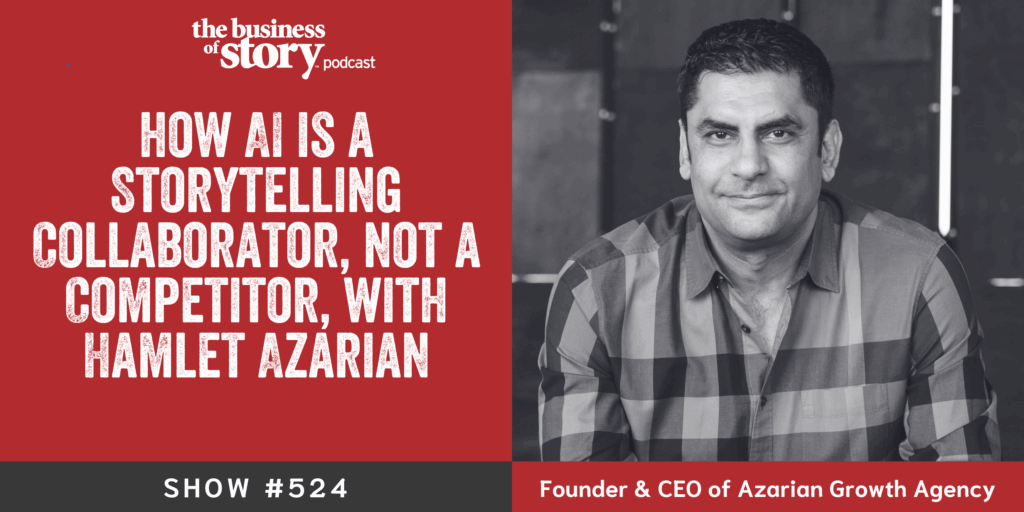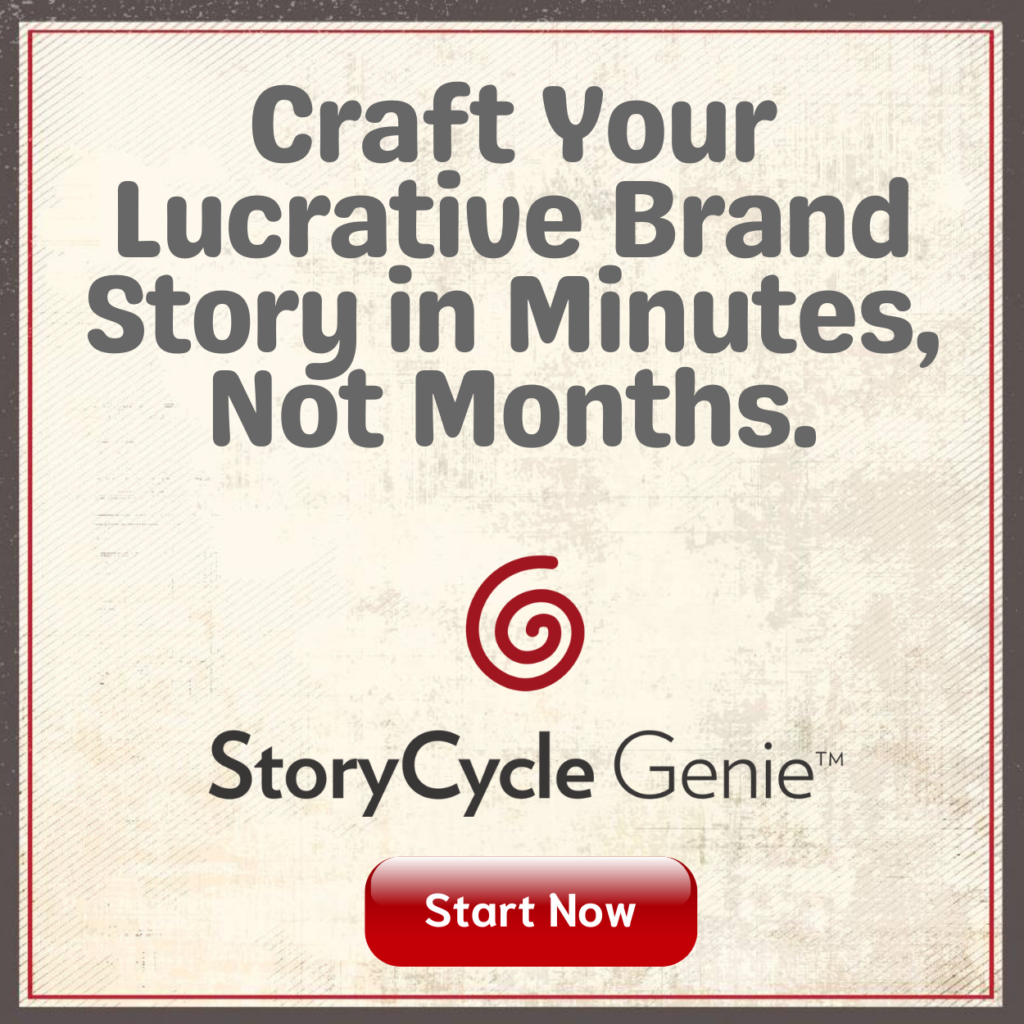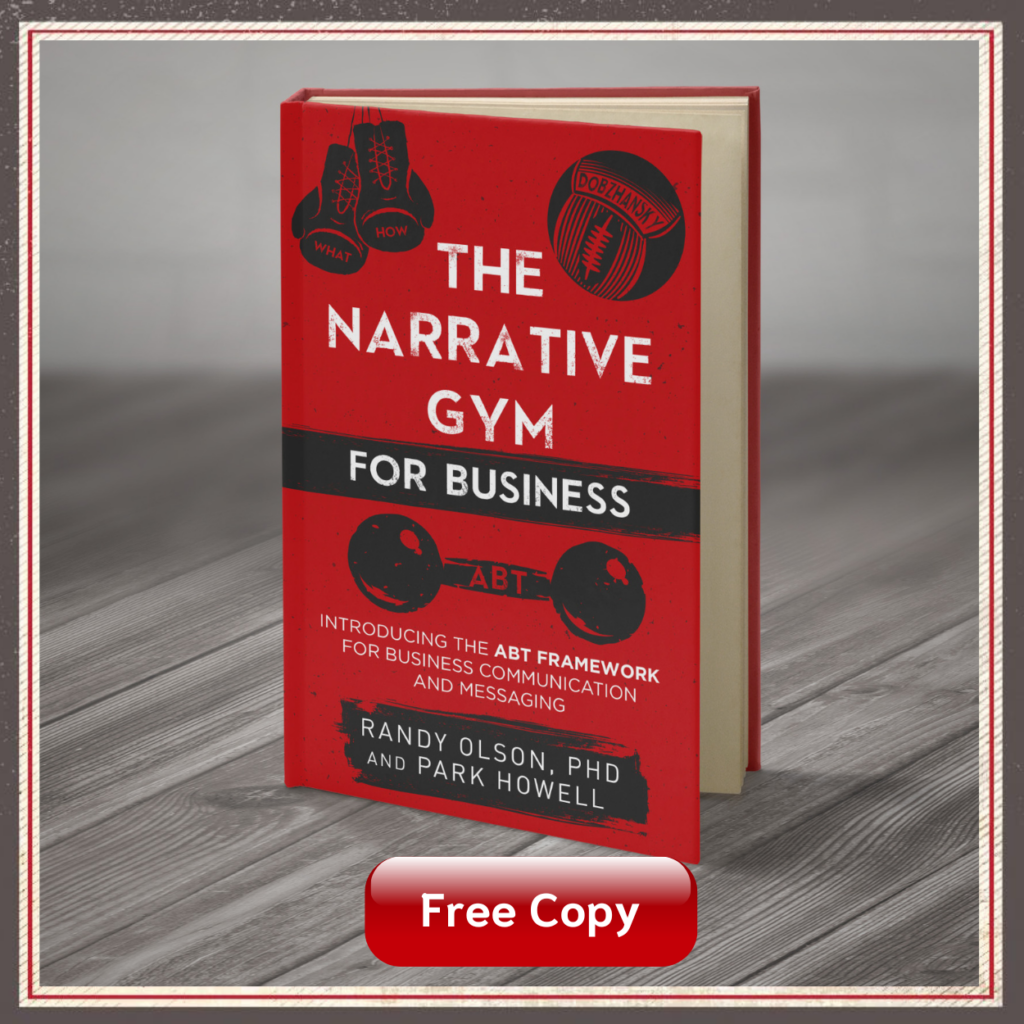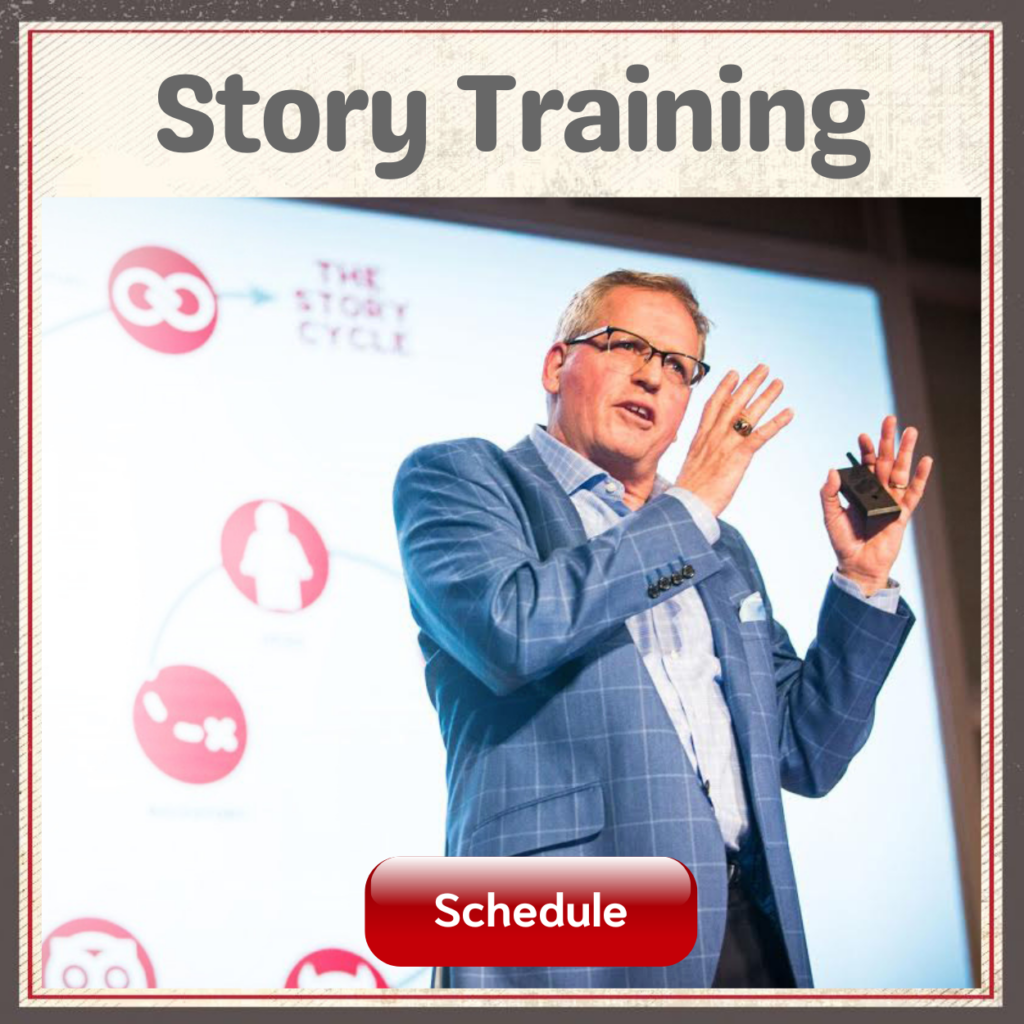How AI is a Storytelling Collaborator, not a Competitor, with Hamlet Azarian

Is AI your adversary or your ally?
Are you feeling burned out from all the AI talk? I get it.
But dismissing AI today is like complaining about cars in the horse-and-buggy era. “Giddy-up, Trigger.”
That’s why I brought Hamlet Azarian onto The Business of Story. He’s not just talking about AI, he’s helping companies harness it to grow smarter and faster.
Hamlet is the founder of Azarian Growth Agency, based in Los Angeles, and a pioneer in using agentic AI to streamline everything from lead generation to creative production.
He reveals how agentic AI is revolutionizing marketing, sales, and operations, not by replacing humans, but by enhancing their creativity and decision-making.
With over $269 million in startup funding raised under his guidance, Hamlet shares how to use AI as your strategic sidekick—from content creation to go-to-market execution.
You’ll learn how agentic AI helps startups and scaling companies identify go-to-market opportunities, craft customer journeys, and even evaluate sales calls—all without losing the human touch. Hamlet explains how these tools aren’t meant to replace your team but to free them up for more creative, strategic work.
We also dive into the brand storytelling side of things.
I put Azarian Growth Agency through our StoryCycle Genie™, and the result? Hamlet’s brand emerged as a Magician, with supporting archetypes of Sage and Hero.
He found it fascinating—and slightly off—because he sees himself not as someone who hides the magic but as someone who reveals it. It sparked a great conversation about authenticity, brand tone, and the emotional promise at the heart of every story.
This episode is loaded with insights on:
-
The power of systems thinking in AI implementation
-
Real-world examples like Orders.co and how they scaled without VC funding
-
Why AI-written content still needs your voice
-
How to make agentic AI work for your unique business challenges
Whether you’re a startup founder, small business owner, or marketing leader looking to scale your efforts with AI, this episode will show you how to treat AI not as a gimmick or threat, but as a teammate that helps you win.
Bonus: Hamlet is offering Business of Story listeners a free AI marketing audit. Learn more in the show notes at businessofstory.com.
What’s In It For You:
- How you can use AI as a transformative force in marketing and business.
- Agentic AI can streamline workflows across various departments.
- AI should be viewed as a collaborator, not a competitor.
- Creative storytelling processes can be enhanced through AI collaboration.
- Continuous learning and adaptation are vital in a fast-paced environment.
Chapters:
- 00:00 Introduction to AI Marketing
- 01:01 Embracing AI in Business
- 03:50 Understanding Agentic AI
- 09:22 The Role of AI in Sales and Marketing
- 12:36 AI as a Collaborative Tool
- 19:08 Go-to-Market Strategies for Startups
- 23:32 Operational Efficiency through AI
- 26:11 Creative Processes Enhanced by AI
- 30:47 Building a Strong Brand Story
- 37:44 Conclusion and Future Insights
Links:
- HamletAzarian.com
- Hamlet Azarian on LinkedIn
- Hamlet on Instagram
- Hamlet on Facebook
- 10 Steps to Implement Agentic AI in Your Strategy
- StoryCycle Genie™
Popular Related Episodes You’ll Love:
- The Human Story in AI-Driven Sales with Gaurav Bhattacharya
- How to Catch Your Stories With Aaron Calafato
- Where to Find The Right Audiences for Your Brand Stories With Rand Fishkin
Your Storytelling Resources:
Connect with me:
- Instagram: https://www.instagram.com/parkhowell/
- Facebook: https://www.facebook.com/groups/BusinessOfStory
- YouTube: https://www.youtube.com/channel/UC0ssjBuBiQjG9PHRgq4Fu6A
- Twitter: https://twitter.com/ParkHowell
- LinkedIn: https://www.linkedin.com/in/parkhowell/
- Website: https://businessofstory.com/abt/
Transcript of Show:
Park Howell: Well, good afternoon, Hamlet. Welcome to the Business of Story.
Hamlet Azarian: Park, thanks for having me on.
Park: And you told me you’re coming to us from a brand-new house in Los Angeles. I can hear the echo behind you because you probably don’t have everything all moved in yet.
Hamlet: The only thing I got moved in is an air mattress. That’s where we’re at so far.
Park: And whereabouts in LA are you?
Hamlet: We’re in Valencia.
Park: Great. Well, I really appreciate you coming on today. We’re going to tackle yet another subject on AI and AI marketing. I got to tell you, a lot of folks that I’ve seen making comments on LinkedIn and other places are saying, “I’m so sick of AI and hearing about AI and talking about AI.” Well, it’s here and it’s not going anywhere. It’s probably the biggest revolution since the Industrial Revolution, and I think we need to talk about it a little bit.
Hamlet: I don’t know about the Industrial Revolution, but I can speak to things in my lifetime. It reminds me a little bit of when the internet came out and also when mobile phones became ubiquitous. It’s one of those transformative periods in our lifetimes that we really need to pay attention to.
Park: Absolutely. You do a lot of work in the startup space. You’ve raised hundreds of millions of dollars in venture capital. When did you first embrace AI and start putting it to work?
Hamlet: When OpenAI released their APIs in June 2020, we jumped right in. I always embrace technology, and as soon as something new comes out, I try to figure out the practicality of it—how to take something complex and simplify it.
Park: What was your first reaction back then?
Hamlet: I saw the potential. The models weren’t as evolved. Hallucinations were common. No one really knew how to use it effectively. But we saw potential and began incorporating it into our content and planning workflows—ideation, generating new thought patterns, and it was already showing promise.
Park: And how are you applying it today?
Hamlet: There’s not a workflow we don’t apply it to—from product management to strategy, sales, marketing, content, and design. Internally and for our clients, we look for areas to help make them AI-ready and transform workflows using AI where it makes the most impact.
Park: Give us an overview of your agency and what you all do.
Hamlet: We’re a growth agency that partners with high-growth companies. Startups that just raised around $1M and haven’t scaled yet come to us to figure out their go-to-market strategy. Then we work with companies doing $2M–$10M who are stuck in founder-led plateaus and need scalable systems. And finally, companies doing $10M+ that need to modernize and push toward that $50M milestone. The numbers matter because that’s where VC and PE investors shift valuation metrics.
Park: Are you using agentic AI to automate all this?
Hamlet: Yes, across every department. We identify repetitive workflows, go department by department—marketing, sales, ops. For example, in sales, we automate inbound lead research, CRM updates, qualifying questions, call evaluation, even proposal drafting and follow-up tasks. It’s all agentic AI.
Park: Define agentic AI for us.
Hamlet: It’s a system that performs repetitive tasks in a loop using various tools. Early LLMs were simple prompt-and-response. Now with agentic systems, they can use tools—search the web, access CRMs, write and send emails, even read documents. It’s about automating complex, multi-step workflows.
Park: You’re replacing time-consuming tasks with momentum. Instead of days, this research happens in minutes.
Hamlet: Not quite seconds, but yes—15 minutes instead of days. And it doesn’t replace humans. It frees us up to think creatively and strategically. We regain hours a day that were previously spent on repetitive tasks.
Park: Apply your creative energy where it really counts, right? I also love the idea of seeing AI as a collaborator, not a competitor.
Hamlet: Exactly. It’s a collaborator. Especially helpful in writing—solves the blank page problem. It gives you a starting draft, but it’s still just version one. You still need to revise and shape it.
Park: So if I’m a new client, how do you set up agentic AI to make it brand-specific and avoid hallucinations?
Hamlet: We start by compiling core documents—your brand voice, past content, case studies, customer profiles, blogs, and more. These are the foundational files the agents use to ensure brand alignment and accuracy. Different agents have different roles—some are long-form writers, others do social content or emails. We use fine-tuned examples and real brand context to eliminate hallucinations.
Park: Is this your proprietary platform?
Hamlet: No, the beauty is we’re in the age of ideas. With tools like Cursor, Bold, Lovable, Gumloop—we can piece together a system using no-code platforms. We don’t have to build from scratch. As long as we know what problem we’re solving, we can launch within days.
Park: Amazing. So when you work with a startup or a $5M company trying to get to $10M, where do you look first?
Hamlet: Go-to-market. We evaluate how customers find them, what their acquisition cost is, and whether their current funnel is profitable. If not, that’s the first thing to fix. We use a playbook based on whether it’s B2B or B2C.
Park: Can you give us a real-world example?
Hamlet: Sure. Orders.co—bootstrapped restaurant tech. No site at first. They had a great product and vision: replace multiple third-party delivery tablets with one unified system. We helped them develop personas, create go-to-market strategy via Facebook and Google, followed by email marketing. Today, they serve over 1,000 restaurants, still bootstrapped, and continue to grow—now launching their own POS system.
Park: So GTM is first. What’s the second biggest opportunity?
Hamlet: Depends on the business stage. For B2C, often it’s operations—support ticket systems, help desk insights. For B2B, it’s usually the sales process. Signal-based outreach is huge—using indicators like executive transitions to trigger outreach.
Park: Let’s talk creative. How close does agentic AI get you to a finished piece?
Hamlet: It’s evolving. Today, we spend more time on ideation, research, and distribution, which we used to skip. Now we outline thoroughly, feed strong data, and the LLMs produce solid first drafts. Editing is lighter. We even go deeper into distribution—collaborations, outreach. AI supports all of it.
Park: What if a startup has no clear brand story yet?
Hamlet: That’s our first step. Define a unique value proposition, audit competitors, find the founder’s authentic differentiator. Test different value props via ads or landing pages. Once one resonates, we go deep. That becomes your foundational brand story.
Park: Do you have agents for that?
Hamlet: Not yet fully automated. We have agents that suggest options, but humans still have to test, decide, and refine based on what aligns with the company’s soul.
Park: Well, I put your brand through our StoryCycle Genie and sent you the results. What’d you think?
Hamlet: I loved it. It had strong insights. It pulled from a lot of content we’ve created. The magician archetype surprised me, though. We tend to show the magic, not hide it. So I see us more as transparent guides than mystery-makers.
Park: I get that. You’re showing how the magic works. But the system pulled it from your transformational outcomes. The Sage and Hero archetypes also showed up—education and results-driven support.
Hamlet: It nailed our core value—growth. It aligned with our track record and our mindset. I appreciated that.
Park: Was there anything it missed?
Hamlet: Maybe emotional tone. It gave us “confidence” as our emotional promise. But we tell clients this is going to be hard. We’ll fail together often before we succeed. Our promise is authenticity, partnership, and learning—not chest-pounding confidence.
Park: But your clients have confidence in you, right? That you’ll guide them through those trenches?
Hamlet: Maybe. It’s a nuance. I’d want to explore alternate words to express that grit-and-grind style.
Park: And that’s exactly what you can do in the Genie—tweak until it feels right, and every piece of content going forward reflects that refined tone.
Hamlet: That’s amazing.
Park: Thanks for letting me surprise you with that. Where can people find you?
Hamlet: Search “Azarian Growth Agency” online or find me on LinkedIn. I’m offering a free assessment and audit for anyone listening today. Just reach out, and I’ll help you uncover AI or go-to-market opportunities.
Park: We’ll include those links in the show notes. Thanks, Hamlet, and congrats on your new home!
Hamlet: Thank you, Park. Great to be here.
 Listen To More Episodes
Listen To More Episodes











